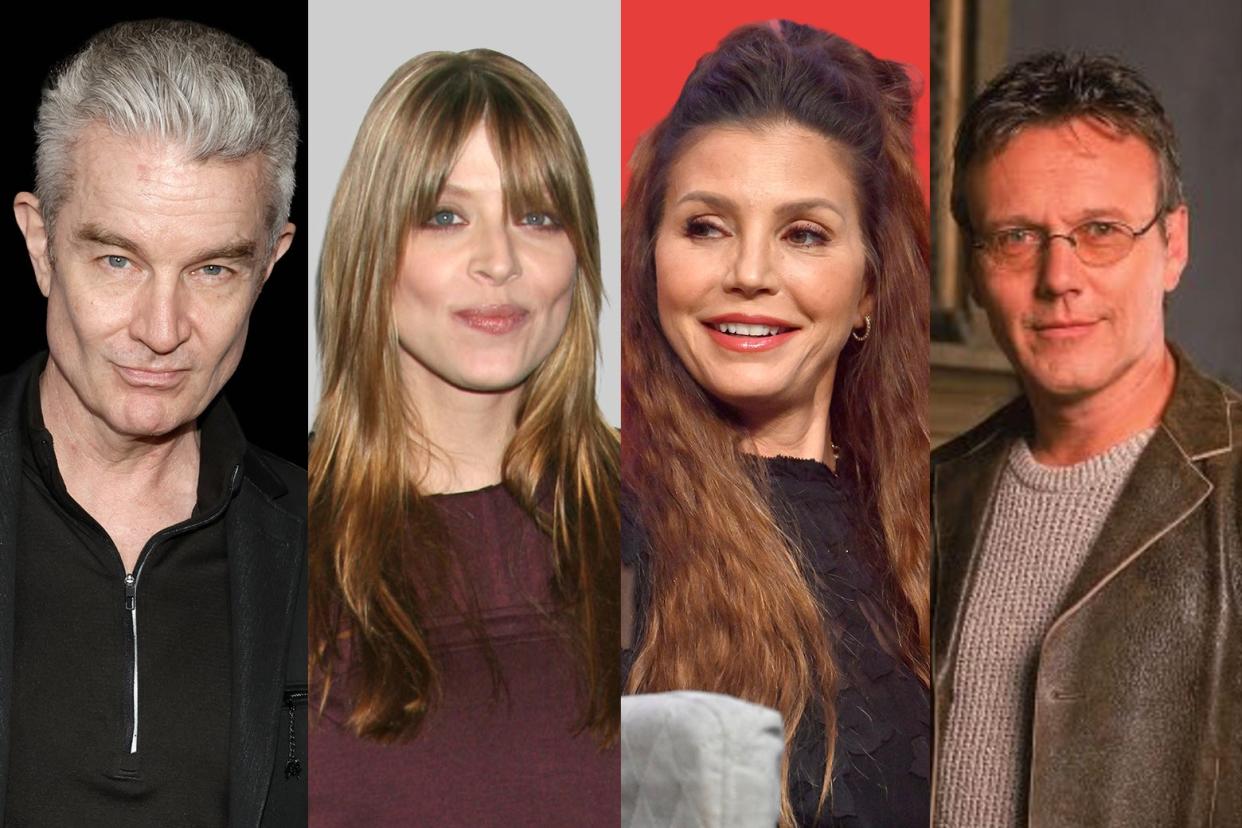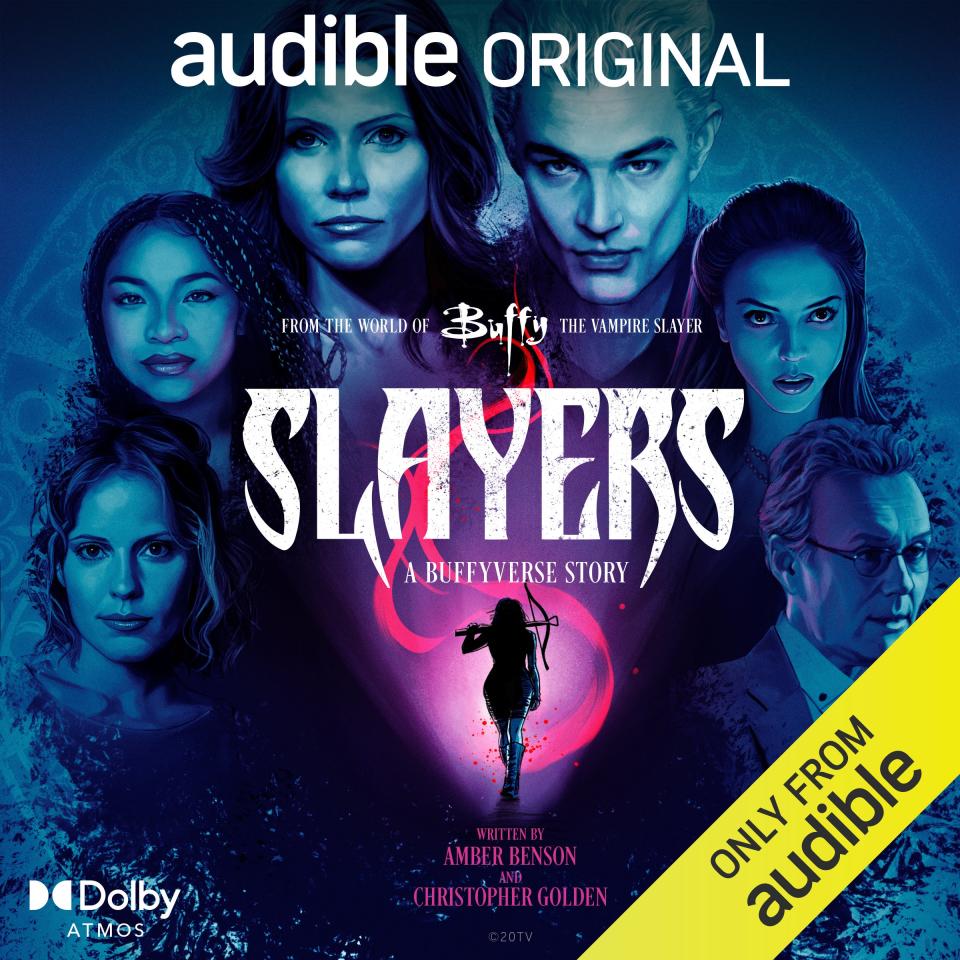We’re Beginning to See What Buffy Is Like Without Joss Whedon

- Oops!Something went wrong.Please try again later.
- Oops!Something went wrong.Please try again later.
- Oops!Something went wrong.Please try again later.
Who owns a universe? The Star Wars universe used to be owned by George Lucas, and now it’s owned by Disney. The Marvel Universe used to be owned by a bunch of weirdos, then by Ron Perelman, and now it’s also owned by Disney. Warner Bros. might own the lion’s share of the “Wizarding World,” but it’s still J.K. Rowling who makes the decisions about the future of Harry Potter’s universe—for better and, increasingly, for worse.
The Buffyverse—as fans call the universe of demons, vampires, and superpowered teenage girls that began with the TV series Buffy the Vampire Slayer in 1997—is officially owned by 20th Century Fox TV. But it’s long belonged to Joss Whedon. Whedon, the wunderkind who turned his 1992 screenwriting debut into a beloved, ballyhooed series, was the recognized brains, heart, and soul driving the Buffyverse, and he cast himself as the arbiter of what—among the property’s sprawling ancillary comics, novels, video games, and more—counted as part of the officially sanctioned story and what didn’t. Fans, who for decades worshipped Whedon, accepted that. Indeed, the 5,000-word entry on “canon” on Fandom.com’s Buffyverse Wiki still essentially defines Slayer canon as anything that Whedon deems “real.”
But the Buffy fandom and Joss Whedon have a different relationship these days. Since 2021, when former cast members, writers, and crew made allegations about Whedon’s on-set behavior during the Buffy and Angel days—or perhaps since 2017, when his ex-wife revealed his many affairs and called him a “hypocrite preaching feminist ideals”—we who grew up with Buffy have wrestled with our love for the show and our onetime lionization of the man whose name appeared on every episode. (Whedon denies some of the allegations, owns up to others, and in 2022 ended a tortured series of interviews with Vulture’s Lila Shapiro by declaring that he was “one of the nicer showrunners that’s ever been.” Since then, he’s made himself scarce.) A new kind of Buffy fandom has grown, epitomized by the popular recap podcast Buffering the Vampire Slayer, which focuses on supporting the actors who spoke out, loving the characters, and living up to the ideals the show represents—even if Whedon, seemingly, could not. For many, me included, coming to terms with our Buffy fandom has meant reconsidering the show as not merely the product of one genius’ vision but as a collaborative work made by actors, writers, producers, and crew, many of them women who had to put up with a lot.
Slayers, a nine-episode podcast series released last week by Audible, puts this philosophy to the test. Like scores of spinoffs before it, Slayers tells a new story set in the same world where Buffy once fought vampires. But unlike all those spinoffs, it stars a whole lot of the original, beloved actors from Buffy the Vampire Slayer playing their familiar roles: Charisma Carpenter as Cordelia, James Marsters as Spike, Emma Caulfield Ford as Anya, Juliet Landau as Drusilla, and Anthony Head as Giles. The series is the brainchild of Amber Benson, who co-wrote it and once again plays Tara.
At New York Comic Con this weekend, most of the cast appeared on a panel—moderated by Buffering the Vampire Slayer host Kristin Russo—on which the original series and its creator were an unspoken but evident presence. Unspoken because, due to the Screen Actors Guild strike, the cast was restricted from discussing “the thing from the past,” as Benson put it—“the thing that shall not be named.” Evident, though, in actors’ explanations of why this new series exists, and why it feels important to them. “We’ve been through the fire together,” Benson said, gesturing at her castmates on the NYCC stage.
In interviews, cast members danced around the elephant in the room. Several of them described the show as boosting characters they felt had been given short shrift in the original series, because, they’ve maintained, Whedon held grudges against them. “A couple of us, our characters were treated … like it was personal,” Caulfield Ford said. And Carpenter tacitly contrasted working with Benson and co-writer Christopher Golden with the environment on set once upon a time: “I knew I was in good hands. I knew I was in a safe space.” She thanked the fans for embracing “justice for Cordelia.”
For years, the faces and voices representing the Buffyverse to fans have not been those of Whedon or the show’s most recognizable stars—Sarah Michelle Gellar, David Boreanaz, and Alyson Hannigan. They’ve been those of the supporting characters, the ones who do the convention circuit and appear on podcasts. Slayers represents a chance for those actors to wrest the Buffyverse from Whedon’s control and make it their own. (Whedon, according to a Variety report, OK’d the podcast but does not seem to have overseen it.) “It is an opportunity to give the Buffyverse fandom permission to enjoy the show, enjoy these characters again,” Carpenter told Variety. Added Benson: “A show is not always just the person that came up with a show.”

So how is this return to the Buffyverse without Joss Whedon? Is Slayers a story that lives up to “the thing that shall not be named”? It is a true joy to hear these familiar voices again. Spike narrates Slayers, and Marsters’ raspy, hammy British accent explains to us that the vampire’s been working undercover in Los Angeles, pretending to be evil, actually doing good. Benson and Golden’s script works overtime to figure out a reason to bring all these familiar characters together, given that so many of them are, technically, canonically, dead. The multiverse story they’ve settled on seems as good a solution as any, and offers Carpenter the chance to play Cordelia as a world-weary Slayer who’s been at it for more than a decade—after all, in her universe, Buffy Summers never made it to Sunnydale. Carpenter’s I’ve-seen-some-shit performance is a welcome spin on a character who evolved from bitchy queen bee on Buffy to enlightened, kind earth mother on Angel.
And Benson and Golden make a clever decision in building the series’ new character, a fledgling Slayer (played by Laya DeLeon Hayes—yes, Doc McStuffins) who’s just gained her powers. Indira is spunky, excited, and—delightfully—a student of Slayer lore. “Not gonna lie—totally a fan,” she says, during her first fight with Spike. “I, like, totally shipped you and Buffy Summers.”
In other respects, though, listening to the eight-hour-long Slayers seems to be an object lesson in what Whedon brought to the table. Because Slayers is a bit of a slog, in a way that Whedon certainly never allowed any episode of Buffy to be. Benson and Golden’s dialogue is showy and wacky, and works awfully hard without quite finding the mix of whimsy and bite that made for classic Buffy repartee. “Drusilla still acts like a feral badger in heat,” Cordelia expounds, “but with my world’s Spike gone, she’s decided it would be fun to be a real queen, with plans! Of her own!” Exposition dumps abound. Dead-air pauses punctuate every conversation. Several characters are given pets to whom they can monologue, the last-ditch move of the desperate scriptwriter.
And much of the material is remarkably poorly suited to audio drama. Benson and Golden seem to be under the impression that the Buffyverse audience demands extended fight scenes, just like the ones on the TV show, which means that for long minutes the audio track alternates between wan quips and what sounds like someone punching a ham. It’s a mistake one cannot imagine Whedon—who, notwithstanding his personal and professional faults, was relentlessly inventive with form and rigorous about telling a story in the most efficient, effective way possible—ever making. The guy who was nominated for a writing Emmy for an episode with hardly any dialogue at all would certainly have thought long and hard about how best to utilize a storytelling format that lacks visuals.
But beyond these nitpicks about voice and storyline, I wonder if this justice-for-the-characters spirit is ever likely to deliver the flavor of drama at which Buffy the Vampire Slayer excelled. Whedon, after all, rarely seemed to think about delivering justice for his characters. He wanted justice for his story. I do think he loved his characters, but he was also willing—these actors might say eager—to be cruel to them, to force them into impossible situations and subject them to terrible trials, from which sprang the almost operatic drama that has stuck with me for decades. Buffy sleeping with Angel, and then him becoming evil? Faith, in her loneliness, finding the most unworthy of allies? Spike’s catastrophic, abusive relationship with Buffy, a storyline that violently divided the fandom but now plays as a note-perfect dramatization of both of those characters’ self-destructive tendencies? Even the sad fates of Anya and Cordelia, though they felt like injustice to the actors playing them—and though they may well have stemmed from Whedon’s personal animus toward those actors—represent Whedon’s ruthlessness in dispensing with any character in order to keep the narrative stakes high.
Once upon a time, there was the cult of Whedon. We were awed by his crackling dialogue, we thrilled to his laser-cut plots, we suffered with the characters as ruthless Joss put them through hell—even when he killed them off. Listening to Slayers, which trades those qualities for a warm, chummy reunion with actors whose voices I truly have missed, and who I am truly glad are getting a chance to reclaim these characters for themselves, nevertheless makes me wonder whether Whedon’s worst qualities as a boss and his best qualities as a showrunner were two sides of the same coin. Exerting iron-fisted control and being, sometimes, an asshole about it is not the only way to make a good TV show, or the best way. And no TV show is worth subjecting people to such behavior. Yet it seems clear, years later, that Whedon’s tactical, sporadic cruelty toward his actors and his co-workers precisely matched the authorial technique that made Buffy as powerful as it was.
Maybe the Buffyverse will never feel that powerful and dangerous again. That’s certainly OK. I think the actors who are leading this reclamation don’t necessarily want it to be. They want it to be fun, safe, and welcoming, and it is. I’m happy they’ve made that trade, happy the universe is in their hands now. But without the flip side of that coin—Whedon’s mercurial edge, which made for thrilling television even as it harmed the people who made it with him—I do wonder if fans will want to keep visiting it.

